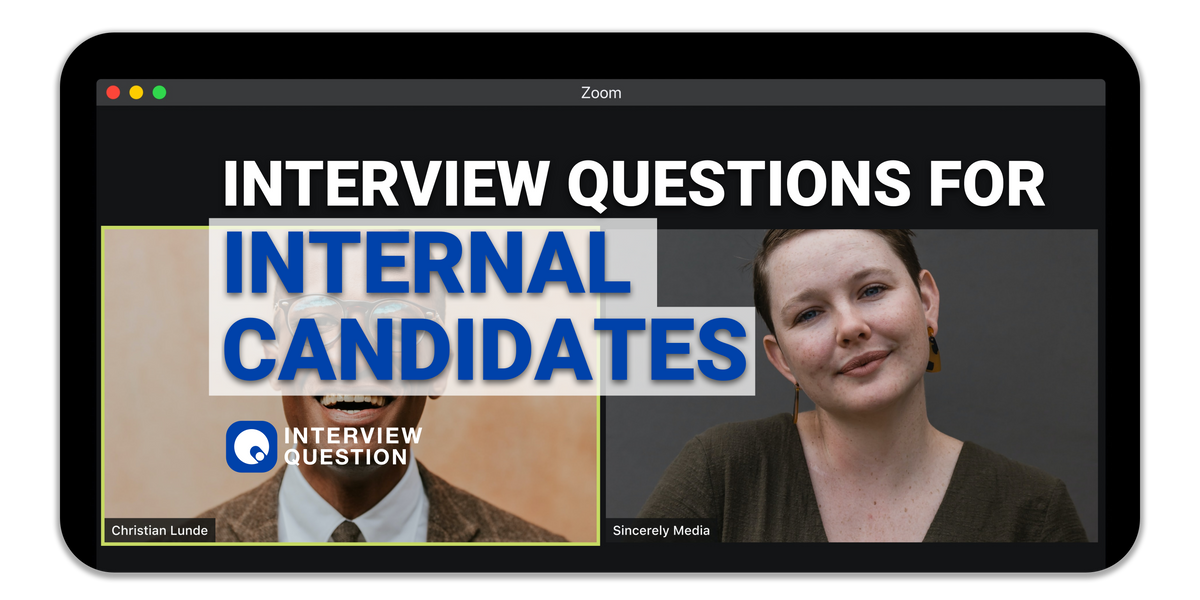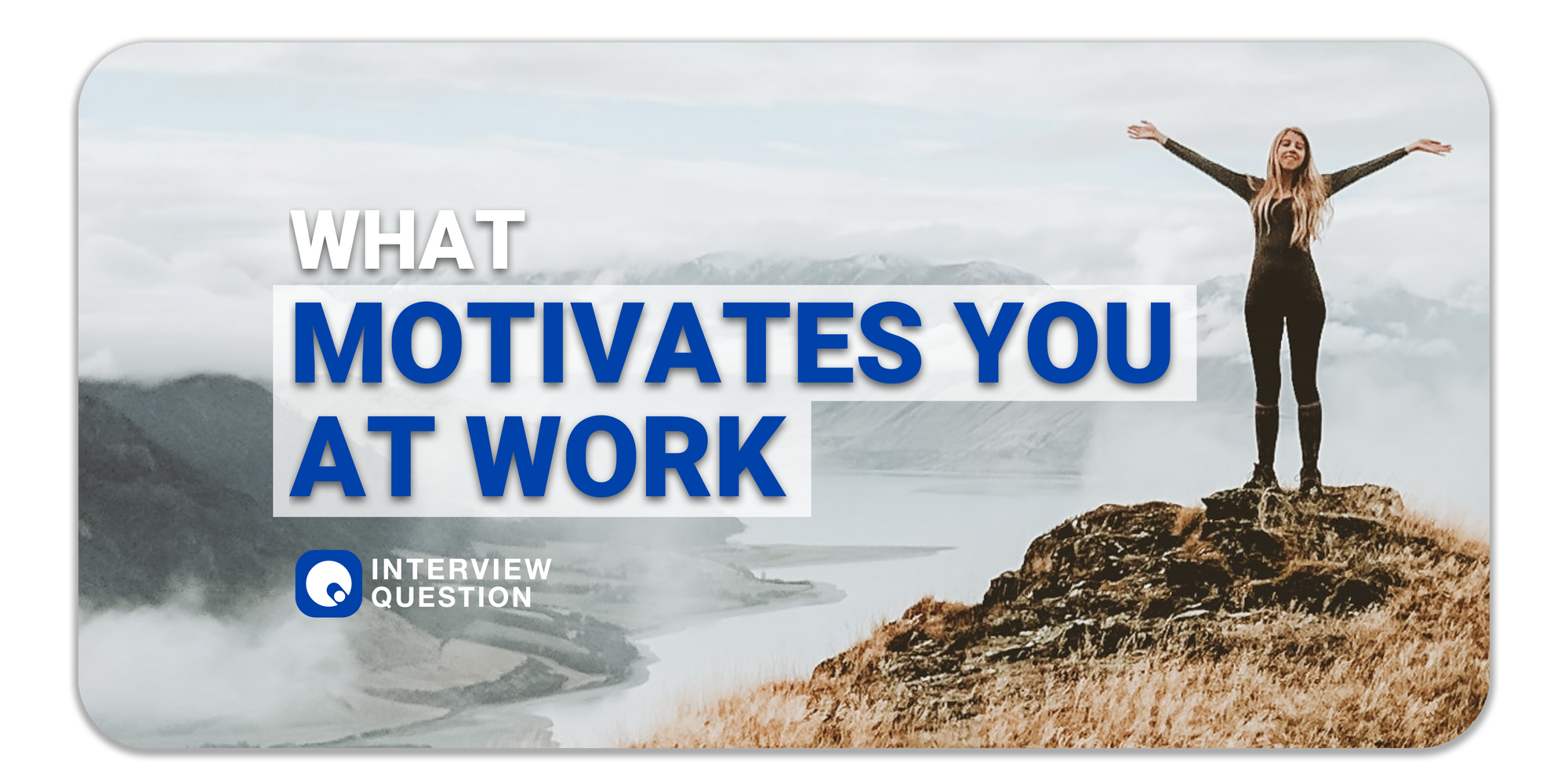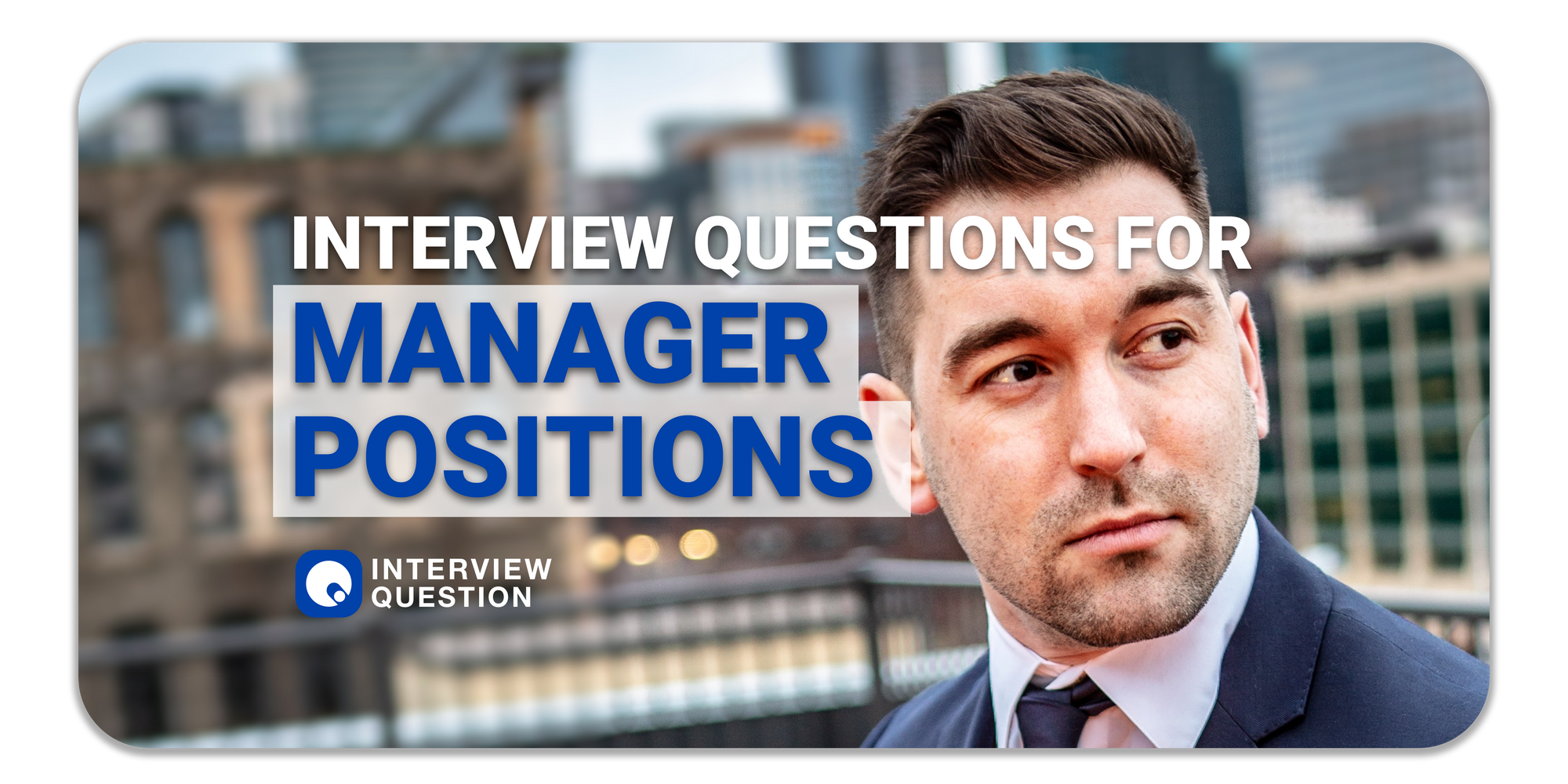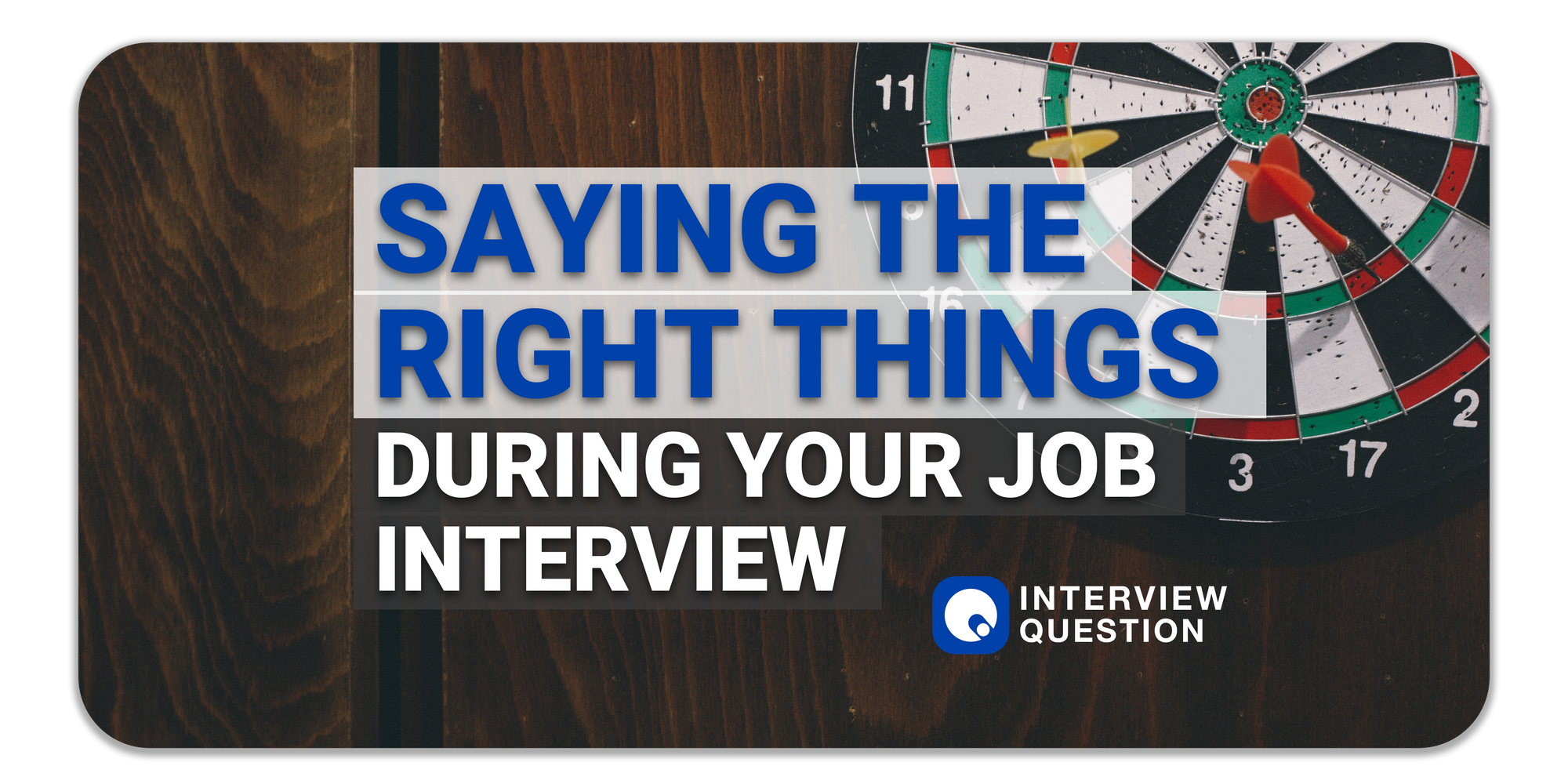Interview Questions for Internal Candidates
Projects & Your Role | Concept of Success | Loyalty | Conflict Resolution | People Management | Job Difficulties | Future | Purpose

Since you are already working in the company and have some understanding of company culture and how things work there, you probably expect the kinds of questions your interviewer has for you to be a little different than of you were a fresh external job seeker. What's more, your interviewer might expect you to provide insights and propose solutions to the kinds of issues the company is facing. In general, the questions might be more open-ended, some may even have no right or wrong answers.
Below we share potential questions which may be crop up for internal candidates during their interview.
Experience: What projects have you worked on and what was your role in each?
To tackle the above question, internal candidates like you will want to discuss specific projects you have been involved in, your current position, past roles and what you learned from the experience. You can also elaborate on the professional skills that you gained and how they prepared you for a greater level of responsibility, past what was initially indicated in your job description. Going into a little detail of the career path you took and the career goals you have in mind for the future is okay at this point.
More specifically, you can talk about the maturity of your leadership skills, interpersonal skills, the level at which you developed your followers and the ways your expertise grew through the course of these projects.
It also says how you are coping in your current role, what your communication style is and what you think of the current team you work with right now. Share instances of successful collaboration and how your leadership and participation helped.
Plus, it shows your potential for leadership responsibilities in the prospective role you are seeking and why you could be the qualified candidate they are looking for.
Some of these pointers could already be in the professional resume you did up, or from the feedback you received from performance reviews. So, memorise those points and mention them during the interview interaction. It could get you out of sticky situations when you stutter or when a mental block appears momentarily.
When answering this internal job interview question regarding projects and your role, keep in mind that you are trying to show your interviewer that you have successfully graduated from doing basic work to taking on bigger challenges in different departments. Raise points that an external candidate would not be privy to - being specific here helps. Therefore, try to pinpoint instances where you took initiative and led projects with a sense of responsibility and accountability. This can help interviewers identify you as a comparatively better ideal candidate.

Meaning of Success: Can you describe what your concept of success is right now?
Another internal interview question which could be brought is could be about your definition of success and how it has changed since your time with the company.
While working for your boss(es), your ideals and definition on accomplishments are likely to have changed from when you first entered the company. You may want something else in your career because of the interactions and the management style(s) you've came across. You may want to persue and direct your time, attention and efforts elsewhere.
So, in order to be an effective leader to ensure that you align to your company's goals and success, and that your hiring manager hears it loud and clear, it is important that you put these ideals into words.
You will want to explain how you strive to accomplish both personal and professional goals while at work and what were the outcomes of your achievements.

More specifically, you can explain whether your achievements remain relevant even after the years have passed. If not, you can pinpoint what brought about the change in your definition of success and give suggestions on how to achieve it for a longer period of time.
Even though this might not be an easy internal job interview question to answer, you can come up with a good response if you ask yourself in advance when you are likely to be satisfied with your professional life. You then need to come up with an answer that reflects this vision.
Loyalty in the Workplace: Show us you're committed to our mission and vision by telling us about your commitment to giving back.
Part of the hiring process is your expression of commitment to the company. This is an important aspect of being an effective leader. But being well-controlled and tight-lipped can be tricky and hard to do so without sounding too self-serving. Be tactful during this delicate process. This is a soft skill you gradually have to master. Therefore, you should come up with a way to communicate this belief without undermining your professionalism when responding to this common interview question.
If you were able to demonstrate how your previous work experiences led to making a difference in the world, you will be able to make yourself appear more sincere and genuine. Seeing that you have made the effort to be proactive in community outreach programs will help your interviewer understand that you are not just talking the talk, but walking the walk.

Moreover, knowing people and showing that you have great industry connections help in highlighting your profile as a stellar internal candidate for the job. Companies like to keep people who are valuable to their organization, and rather than letting them find better jobs elsewhere (which they clearly know of), companies would tend to pick such indispensible internal applicants for larger, expanded roles.
Conflict Resolution: What would you do when dealing with an angry employee or customer?
Conflict management and resolution is yet another topic frequently featured in interview questions.
Your interviewer, during internal hiring, will likely want to know about how you deal with situations of conflict at work. Therefore, if this type of situation has happened to you before while within your existing scope of work, share how you handled it with specifics that are unique to the company itself. Possibly, if you were not able to resolve the conflict, you can talk about what strategies you are willing to adjust or use in order to bring about a resolution.
The truth of the matter is that conflict can happen within any workplace and therefore, you should be aware of how it may arise and how you will handle it if it does.
However, as an internal applicant the perspective you bring must be different and the response you deliver in an internal interview is expected to be vastly different than that of a typical interview question response. Therefore, practice coming up with solutions ahead of time until your responses feel comfortable, natural and appropriate to the situation. Adjust the terminologies used. Introduce specific examples. Use slangs, phrase and hot industry words. Do whatever it needs to prove that you are a strong applicant who is outstanding (and not just a regular outside hire).

People Management: What are the qualities of a good team leader / team member?
Unlikely you will get a straightforward answer to the above question. With that said, you need to discuss what makes a good manager great and what do you expect from your top management. For example, you can talk about the importance of maintaining open communication channels between leadership and followers, willingness to tackle unforseen challenges as well as how being flexible is an asset for bosses and employees alike.
When you are discussing leadership styles and qualities, you will want to stay away from mentioning the technical skills that you possess. Instead, focus on the softer skills which are not as easy to identify but are much more difficult to master. In particular, it may be useful for you to explain how you keep cross functional team members motivated, committed and loyal even in times of difficulty.
What was the most difficult part of this job that you have had to do so far?
This question puts you on the spot. It is hard to avoid criticising the very people who you want to seek a job from, so you will want to avoid responses that say that the people are not good or the job is difficult. Instead, you can explain exactly what you were given and how it was not completely your fault that it ended up being difficult.
Talk about how you rise from the difficult and challenging project or circumstance.
For example, if you were given a project which was too big for you to handle all by yourself, then you can share how you eventually got backup from other colleagues in order to complete the project. Furthermore, this will also show that you do not like to leave jobs unfinished.
What do you see as the future opportunities for this role?
Having the clarity in understanding your current role and your part in it is a good way to ensure that you are not only aware of the future opportunities but also be ready to grab them as and when they arise.
Prepare your answer before going for an interview so that you can think about the future prospects. You are given a golden opportunity to redefine your job description and tell the hiring manager what you expect this dream job should be all about.
In order to prepare yourself as an internal candidate, you need to gather as much information as possible on the postion you are interviewing on (your colleagues from other departments, suppliers and even customers), the competitors, possible new products or services they may offer in the future, what do they do with their employees who are seeking growth and more. You have a leverage and an insider advantage as an internal candidate (compared to an external candidate) because of your familiarity with the people and processes.
Get a good word from your current boss and your subordiantes where possible while as an existing current employee - these references can connect you to greater heights on the corporate ladder.

What is the purpose of your position?
Since you are already employed in the company you are applying for, then you should show a greater degree of understanding of the purpose of the new internal position you applied for. Multiple possible responses can reflect how your employers will expect you to understand the job. Of course, you will want to be prepared enough to answer honestly.
In order for your answers to be well received, it is essential that you come up during the job interview, prepare a response based on two broad areas of expertise and knowledge that relate to the job of your interviewer:
Exposure to challenging projects
Whether through previous role, work experience or extended training, there might be specific skills or characteristics which are common in all endeavours. Possibly share about your biggest challenge and proudest achievement. For example, the ability to apply time management skills will be consistent in any role, not just your current position.
Exposure to new challenges
You may have been exposed to challenges which are unique to this company and not your own previous employer. For example, you may have worked on a project that is completely different from what you used to do in the past.
Conclusion
Applying for a new job in the same company is no different from applying for a job at a new company. Take it slow. Take time while interviewing prospective employers and even when you are applying. You don't want to apply for six jobs at the same company, but none of them give you a great answers. It is best to start with the easy ones because if you don't get a job at all, you will be glad that you didn't waste your time applying for things that require no real skill since there is no point in wasting time on application that requires skills. Once a job is given, then it's really easier to apply again and again.


